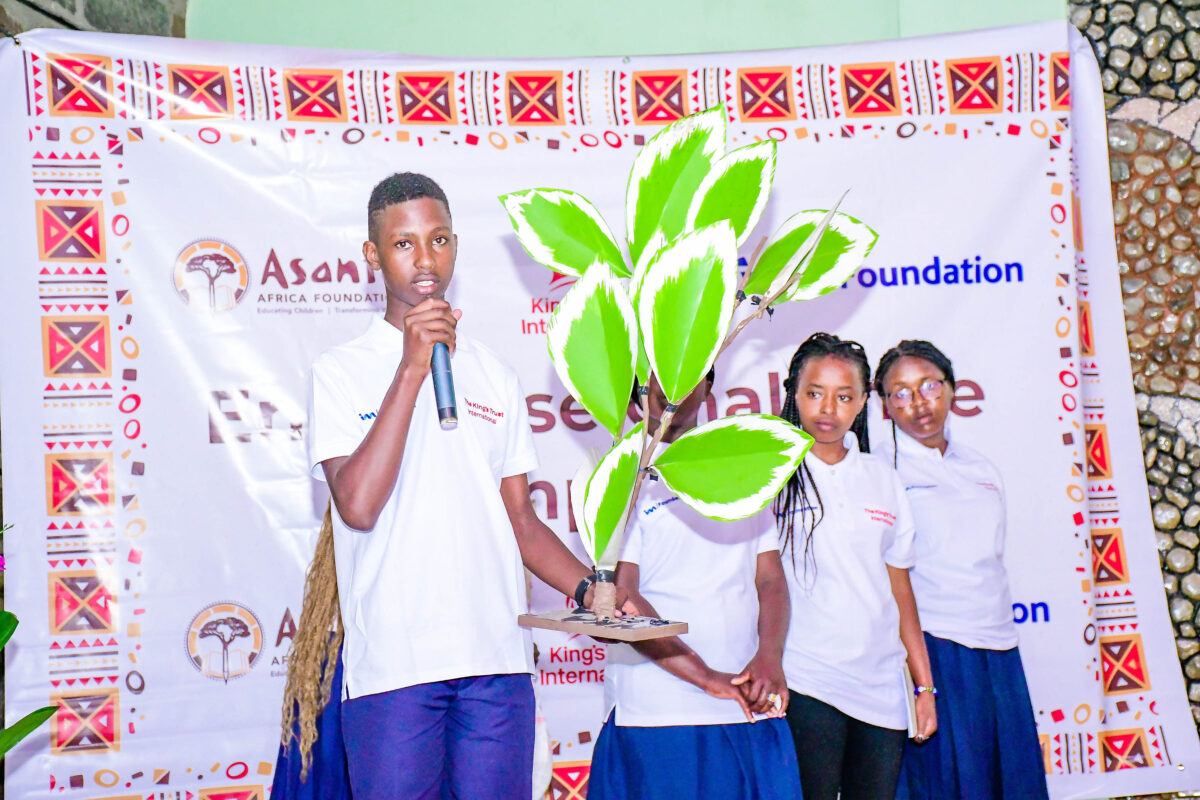At King’s Trust International, we believe that young people are not only the most affected by the climate crisis, but also the most powerful agents of change. In a world where four in five young people live in lower-income countries – areas particularly vulnerable to effects of the climate crisis – the need to equip the next generation with the tools to tackle climate change is urgent and essential.
Our 2023 Future of Work Report revealed that while 68% of young people are keen to pursue green jobs, over a third feel they lack the skills to do so. That’s why we’ve integrated climate action into the core of our education, employment and enterprise programmes. We’re not just preparing young people for school and the workplace today; we’re empowering them to build a more sustainable tomorrow.
Our Approach to Climate Action
We take a holistic approach to climate action across education, employment and enterprise, empowering young people with the knowledge, skills and opportunities they need to thrive in a green economy.
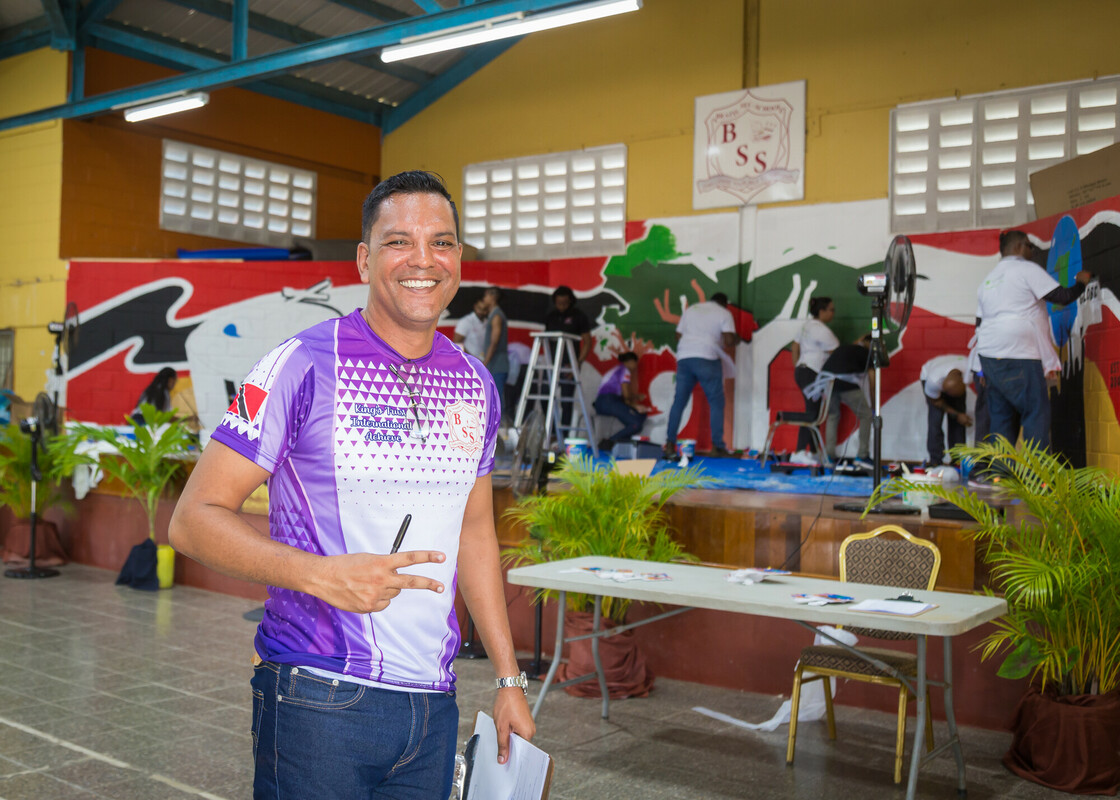
We’ve embedded climate literacy across our education programmes as a key part of our commitment to building green knowledge and mindsets. As a member of the UN’s Greening Education Partnership, we contribute to global efforts around greening curriculums, teacher training and education systems.
All our Enterprise Challenge programmes now include a dedicated sustainability module, which has inspired hundreds of innovative green business ideas, from biogas to biodegradable packaging. Our Achieve programme also features a new climate literacy module and young people frequently select green themes for their community projects, such as school gardens, recycling initiatives and local clean-up campaigns.
Our employment programmes create pathways to green jobs by providing sector-specific skills and connecting young people with environmentally responsible employers. In Nigeria, for example, we focus on pathways into renewable energy and recycling, while in the Caribbean, we are piloting new initiatives in food security and sustainable agriculture, such as Get Into Agriculture in Barbados and the Team programme in Saint Lucia. In other countries, young people are gaining practical experience through green work placements, including tree planting and forestry conservation in Malaysia.

Our enterprise initiatives emphasise sustainability throughout. We support young entrepreneurs to develop climate-smart businesses, from smokeless fuel briquettes to traditional handicrafts and sustainable sport management, while also raising awareness that sustainability is a critical element of business success for any entrepreneur. This year, 87% of Enterprise programme graduates from Greece and Jamaica said that environmental sustainability was important when setting up a business.
Across our programmes, we see a growing movement of climate-conscious young people who are ready to lead the change. Here are three powerful examples from around the world:
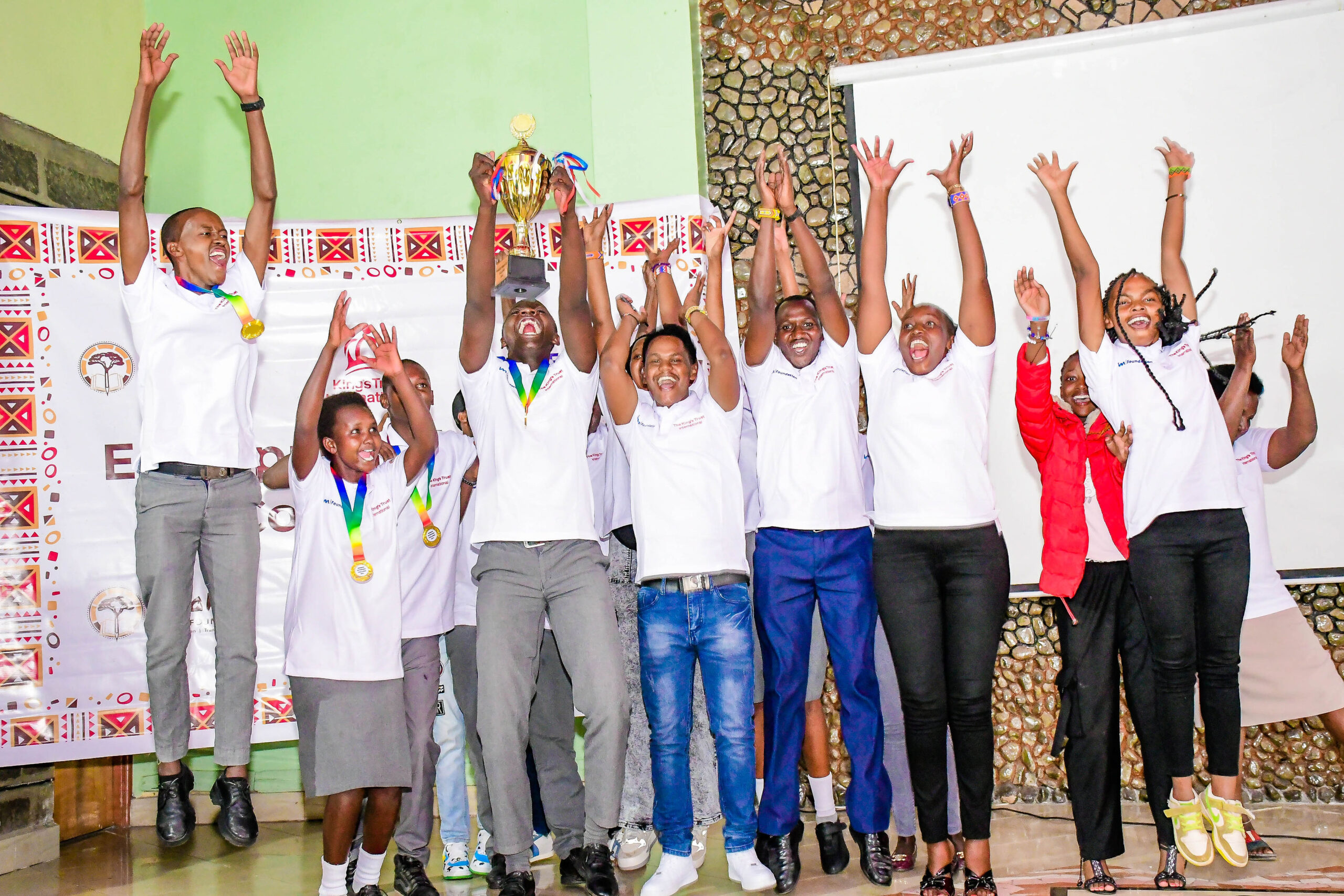
Enterprise Challenge in Kenya: Innovation Rooted in Sustainability
Delivered in partnership with Asante Africa Foundation (AAF) and I&M Foundation, the Enterprise Challenge (EC) in Kenya brings interactive, climate-smart business education to rural high school students across Narok, Samburu, Marsabit, and Turkana Counties. In 2024 alone, the programme reached over 1,700 students in 22 schools through a curriculum that blends entrepreneurial knowledge with real-world sustainability challenges.
As Geoffrey Kasangaki, Deputy CEO of Asante Africa Foundation, shared: “This partnership is accelerating the depth of learning and broadening the reach to more rural young people who are frequently forgotten. We have first-hand experience that young people, when given the tools and knowledge, will collectively solve challenges their communities face and make money doing it.”
More than a standard business course, the EC integrates sustainability and green economy principles into every step of the journey. Young participants learn about market research, business planning and financial management through a green lens. The “triple bottom line” framework encourages them to consider environmental and social impact alongside profit.
Green literacy modules are a core feature of the curriculum, helping students understand global sustainability goals, the principles of green growth and the real-world application of environmentally friendly practices.
Young people have responded with inspiring creativity:
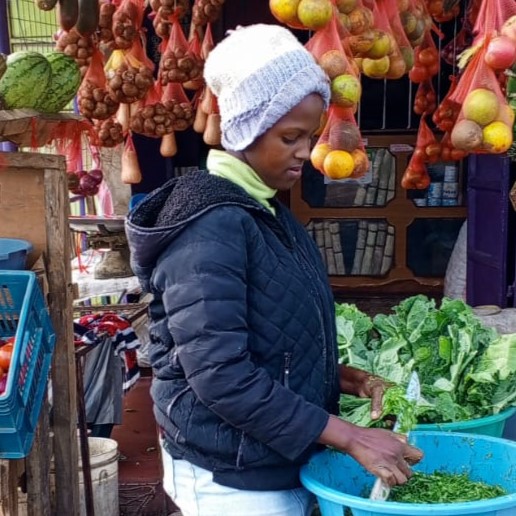
Jamila transitioned from being a school student to an entrepreneur and employer, creating jobs for other women in her community through her produce shop.
As John Mwambwa, Youth Leadership Programme Coordinator at AAF Kenya, shared: “The young people are no longer viewing entrepreneurship as only for profit making but also a way of providing solutions to community needs, playing with fair rules and making life more sustainable.”
The impact goes beyond the classroom.
Christine Pharez, a Technical Field Officer at AAF Kenya, noted: “The green skills foster critical thinking and problem-solving abilities. Students are often engaged in hands-on projects that require innovative solutions to real-world environmental challenges like tree planting. This creative thinking is important in effective leadership.”
Get Into in India: Green Skills for the Workforce of Tomorrow
In India, King’s Trust International partners with Magic Bus to deliver Get Into, an employability programme that supports 18 to 30-year-olds who have completed their education but face barriers to entering the workforce. Since 2016, the programme has operated across 12 centres in six cities and supported over 17.850 young people.
To address the global climate crisis, KTI and Magic Bus collaborated to launch the “Greening Get Into” initiative. The curriculum now includes 10.5 hours of content focused on climate literacy, waste management, youth climate activism and the green economy and jobs.
Anindita Roy, KTI Programme Manager for India, describes the impact of the initiative:
“Young people after these sessions began to champion climate responsive behaviour in the centres, their homes and communities. Young people in groups took on community projects as part of the curriculum and were instrumental in raising awareness with their neighbours and encouraging them to adopt climate friendly conservation practices.”
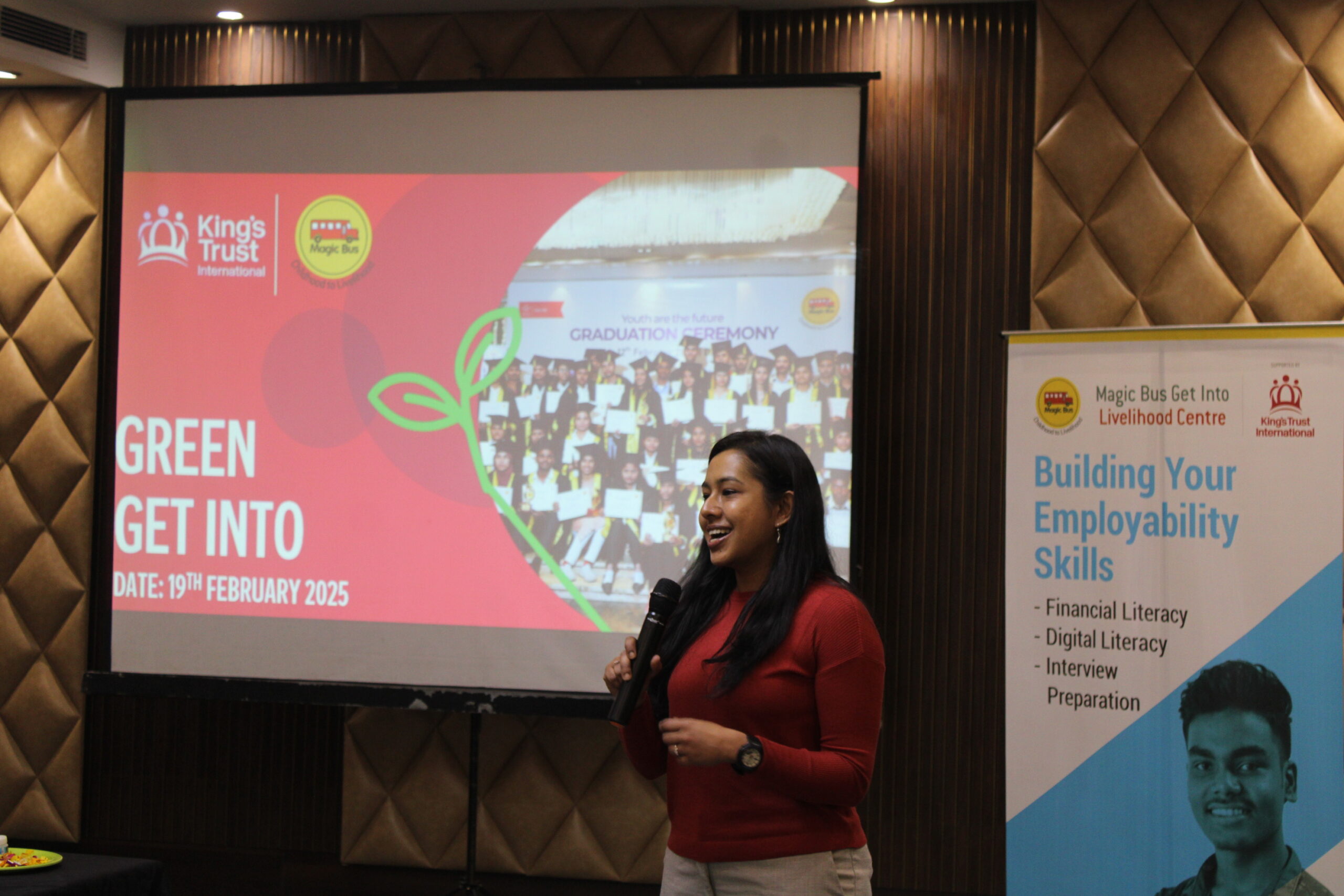
In February 2025, we hosted a Green Workshop in Delhi convening 150 young people, Magic Bus staff, 7 employers, and King’s Trust representatives. The day included panel discussions, critical thinking sessions and young people sharing their community projects.
Anindita Roy, described it as a moment of inspiration: “Young people asked tough questions of employers and gave them suggestions on what more they could do and what they would like to see in workplaces as the workforce of tomorrow.”
Community action is a key outcome. Groups of young people led local projects to:
- Work with local administration to organise a clean-up transforming a waste dump into a public children’s park
- Promote energy and water conservation among neighbours
- Undertake litter-picking and set up basic water harvesting systems at home
These efforts build aspirations for green careers and influence employer practices. All 30 of our employer partners now promote workplace sustainability, from banning single-use plastics to implementing recycling systems and using solar energy.
Team in Saint Lucia: Building a Greener Path for At-Risk Youth
Launched in 2023 in Vieux Fort with the Royal Saint Lucia Police Force, the Team programme in Saint Lucia responds to two urgent issues: rising youth unemployment and high rates of youth crime. Targeting unattached and at-risk young people aged 17 to 30, Team offers a structured, supportive environment focused on confidence-building, vocational skills and positive pathways.
A core component of the programme is its focus on green skills and environmental stewardship. Through one-to-one coaching, community projects and green literacy sessions, participants learn to lead by example in their communities.
The results speak volumes:
- 95% of participants were employed within six months.
- 100% improved at least one core skill.
- 83% said the programme helped them overcome challenges or achieve personal goals.
Community impact is central to the programme’s success.
The former Commissioner of Police, Crusita Descartes-Polius, called Team “one of the key components in youth programming that is targeting youth participation in crime fighting measures.”
By engaging young people in sustainability-focused community projects, we help them reclaim their futures while contributing to safer, greener communities.
Towards a Climate-Resilient Future
Across Kenya, India, Saint Lucia and beyond, young people are rising to the challenge of climate action. Whether they are developing eco-enterprises, engaging employers in sustainability or transforming their local environments, they are proving that the fight against climate change needs their voice, their innovation and their leadership.

